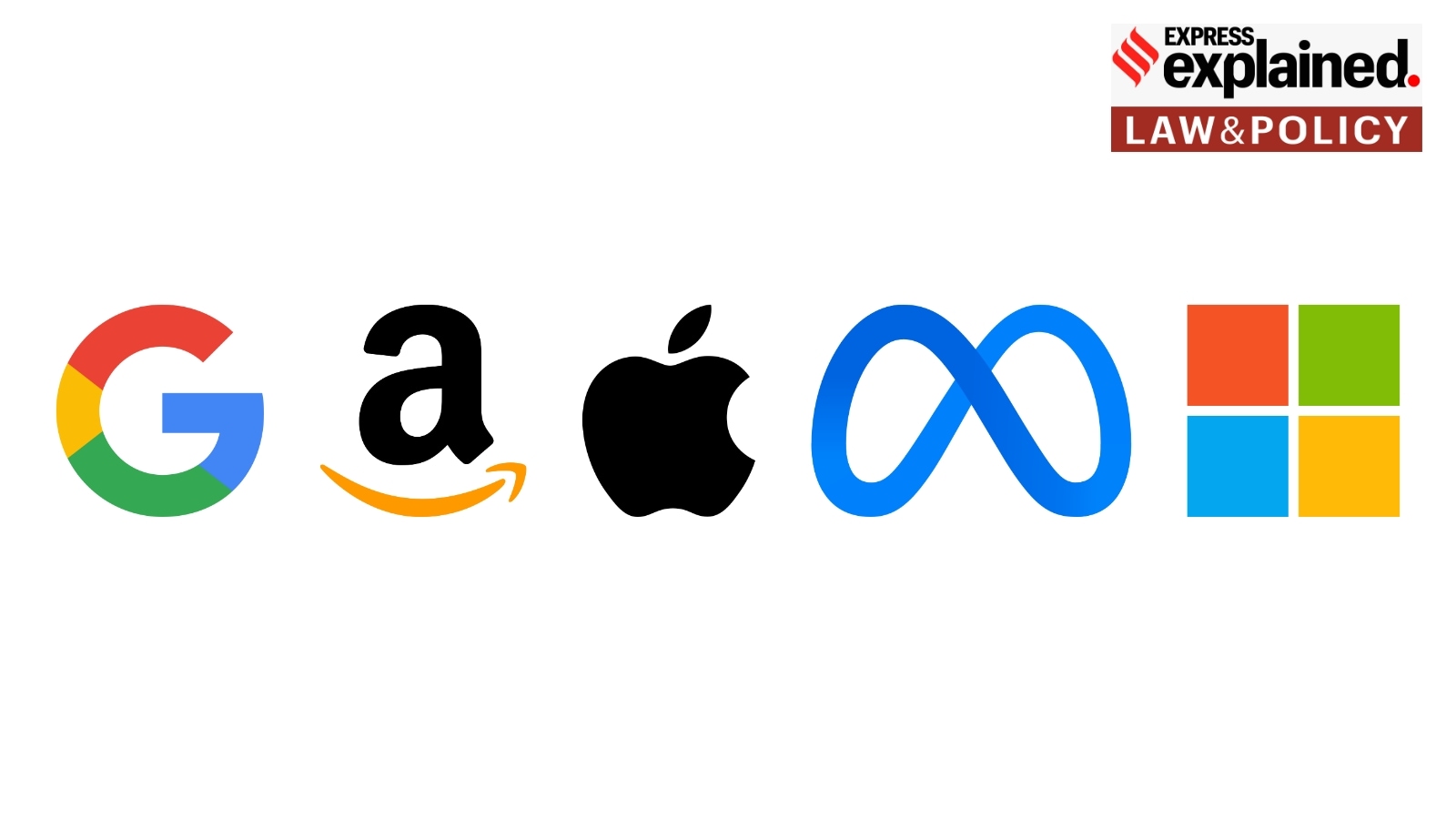Taking a leaf out of the European regulatory handbook, India has proposed a new digital competition law that could stop tech giants like Google, Facebook, and Amazon from self-preferencing their own services, or using data gathered from one company to benefit another group company.
The draft law, called the Digital Competition Bill, 2024, also has provisions to set presumptive norms to curb anti-competitive practices before they actually take place, and promises to impose heavy penalties — which could amount to billions of dollars — for violations. If this were to go in force, it could require big tech companies to make fundamental changes to their various platforms.

The proposal is similar to the EU’s Digital Markets Act (DMA), which went into complete effect earlier this year, and requires large tech firms like Alphabet, Amazon and Apple to open their services, and not favour their own at the expense of rivals. The law came in on the back of a long history of anti-competitive practices by these companies.
The Ministry of Corporate Affairs (MCA), which is handling the draft, has called for comments, with the last date being May 15 (Wednesday).
Key proposals of the draft digital competition Bill
1. Predictive regulation
Due to the complex world of digital markets, which are ever-growing with increasing interlinkages between various offerings made by a single company, regulating for market abuse after it takes place (as in an ex post framework) is not optimal. Instead, a forward-looking, preventive, and presumptive law (an ex ante framework), which foresees the potential harms that can arise out of antitrust issues and prescribes pre-determined no-go areas is perhaps the way forward. This is one of the foremost proposals in the draft Bill.
Currently, India follows an ex post antitrust framework under the Competition Act, 2002. One of the biggest criticisms of the law has been that regulating after the incidence of market abuse involves delays — by the time the offending company has been penalised, market dynamics change to rule out smaller competitors.
Story continues below this ad
2. Significant entities
The Bill proposes that for certain “core digital services” like search engines, and social media sites, the Competition Commission of India (CCI) should designate companies as “Systematically Significant Digital Enterprise (SSDE)” depending on various quantitative and qualitative parameters such as turnover, user base, market influence etc.
The quantitative parameters for a company to be designated a SSDE are:
- If in the last 3 financial years, its turnover in India is not less than Rs 4,000 crore; or its global turnover is not less than $30 billion; or
- Its gross merchandise value in India is not less than Rs 16,000 crore; or
- Its global market capitalisation is not less than $75 billion; or
- The core digital service provided by these companies should also have at least 1 crore end users, or 10,000 business users.
Entities that don’t fall under these parameters can still be designated as SSDEs if the CCI believes that they have a significant presence in any given core digital service. Entities which are designated as SSDEs, have been prohibited from engaging in practices such as self-preferencing, anti-steering, and restricting third party applications. If they violate these requirements, they can be fined up to 10% of their global turnover.
3. Associate Digital Enterprises
Story continues below this ad
Understanding the role that data collected by one company of a major technology group can play in benefitting other group companies, the Bill proposes to designate associate digital enterprises (ADEs).
If an entity of a group is determined to be an associate entity, they would have the same obligations as SSDEs depending on the level of their involvement with the core digital service offered by the main company. Illustratively, if one were to look at Google Search and how it steers direction data to Google Maps, the latter can theoretically be deemed an ADE. Same would apply to YouTube too, depending on the level of data sharing that happens between the core Google Search and how that plays out in the recommendations that YouTube makes to users.
Criticism of the draft
Naturally, there has been resistance to this Bill — from companies, industry bodies funded by tech companies, and boutique consultancies hoping to onboard tech clients — in its current form.
For big tech companies, an ex ante framework with its strict prescriptive norms could lead to significant compliance burden, and shift focus from innovation and research to ensuring that companies do not presumptively engage in an anti-competitive practice.
Story continues below this ad
As a result, the tech giants are calling for the current competition law to be strengthened rather than moving towards an ex ante framework. For instance, an industry executive told The Indian Express, that because of the stringent requirements of the EU’s DMA, there has been an increase of 4,000 per cent in the time it takes to find things via Google search.
If the law were to go into effect as is, it would mean that a company like Apple will have to allow iPhone users to be able to download apps from a third-party app store, over Apple’s own store — something that the company has lobbied against vehemently.
While Android’s relatively open nature over iOS allows such ‘sideloading’ of apps, Google too has advocated against it, primarily claiming that apps that are downloaded from outside their stores can have potential security ramifications.
Companies are also understood to be concerned about the broad definition — both quantitative and qualitative — of who a significant platform could be. Unlike EU’s DMA which specifically names the ‘gatekeeper’ entities, that decision in India’s draft law has been left to the discretion of the CCI. Companies believe that could lead to arbitrary decision making, which could potentially also impact start-ups. Companies are claiming that if they have to make the changes to their platform and cut down on data sharing, that could also impact smaller businesses who rely on their platforms to reach a big target audience.
Story continues below this ad
The need to foster digital competition
Government officials believe that the big tech companies have shown a history of engaging in anti-competitive practices, and a presumptive framework would work better to address this. Last year, Google was fined Rs 1.337 crore by the CCI for its anti-competitive conduct in the Android ecosystem.
There is also concern within official quarters that in the last decade or so, a majority of the innovation has been confined to within the stables of a handful of big tech companies, mostly from the US. Officials believe that a big reason for this are the high market barriers for new entrants in the sector — in the online market, once a company gets a significant portion of the market, their product becomes the default way to access that particular service, with rivals finding it increasingly difficult to challenge their dominance.
Even companies like Spotify, which users would typically think of as big online businesses, have complained about the policies of companies like Apple and Google.
While there is always a presence of niche online products — for instance users who care about their privacy may choose to use Signal for messaging over WhatsApp. and a search engine like DuckDuckGo over Google Search — they are relegated to users who are looking for a certain feature, rather than being the norm. One benefit that smaller companies have had with the growth of big companies like Google and Facebook is cheap advertising rates compared to the traditional media.
Story continues below this ad
However, that has also given rise to a surveillance filled digital advertising industry, which is always making inferences about users behind the scenes and across platforms they access.








































